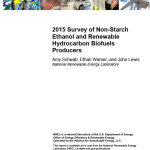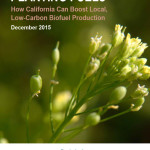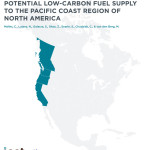2013 E2 Advanced Biofuel Market Report
Today E2 releases its third annual advanced biofuel market report. The report shows a continual uptick in advanced biofuel production capacity from 2011-2013. Company projections provide adequate fuel to meet the federal Renewable Fuel Standard and California’s Low Carbon Fuel Standard through 2016, the furthest year the report assesses.
In short, the advanced biofuel industry already has over 1 billion gallons of capacity this year, which will grow to 1.4-1.6 billion gallons by 2015. In 2016, capacity can reach 1.6-2.1 billion gallons.
Companies reported over 20,300 jobs from biofuel production by 2016, and have received $4.85 billion in private investment since 2007. This is augmented by $600 million in public grants, as well as $940 million in loan guarantees.
We assessed the domestic capacity of advanced biofuels, because E2 is focused on understanding the economic implications to the U.S. from the growth of advanced biofuels. Further, we used a unique definition of advanced biofuels, assessing only projects that reduce greenhouse gas emissions by at least 50% according to California’s Air Resources Board. E2 wants to use the most comprehensive greenhouse gas criteria to understand environmental impacts (and improvements) from advanced biofuels.
Throughout the report, we talk about the unique methods that companies are using to address challenges to growth. A critical challenge is sufficient capital, and companies are using partnerships, federal grants and loan guarantees, and access to debt financing to provide the cash needed.
From what we learned, investments from oil & gas companies appear to be a Catch-22. Biofuel companies compete with petroleum fuel projects for investments by oil & gas companies. The far less mature biofuel projects can have higher risk profiles or operating expenses, making the investment appear less favorable. Therefore, oil & gas companies are reluctant to invest, and biofuel companies don’t receive the cash needed to further develop their technologies and lower costs. Oil and gas companies appear willing to invest in biofuel technologies once they have fully matured, but less frequently are willing to provide the earlier stage capital to help biofuels compete.
Overall, despite challenges to the industry, we find that advanced biofuels continue to grow, provide jobs to the U.S. economy, and provide alternatives to fossil fuels.
Filed in: Blog • Mary Solecki












